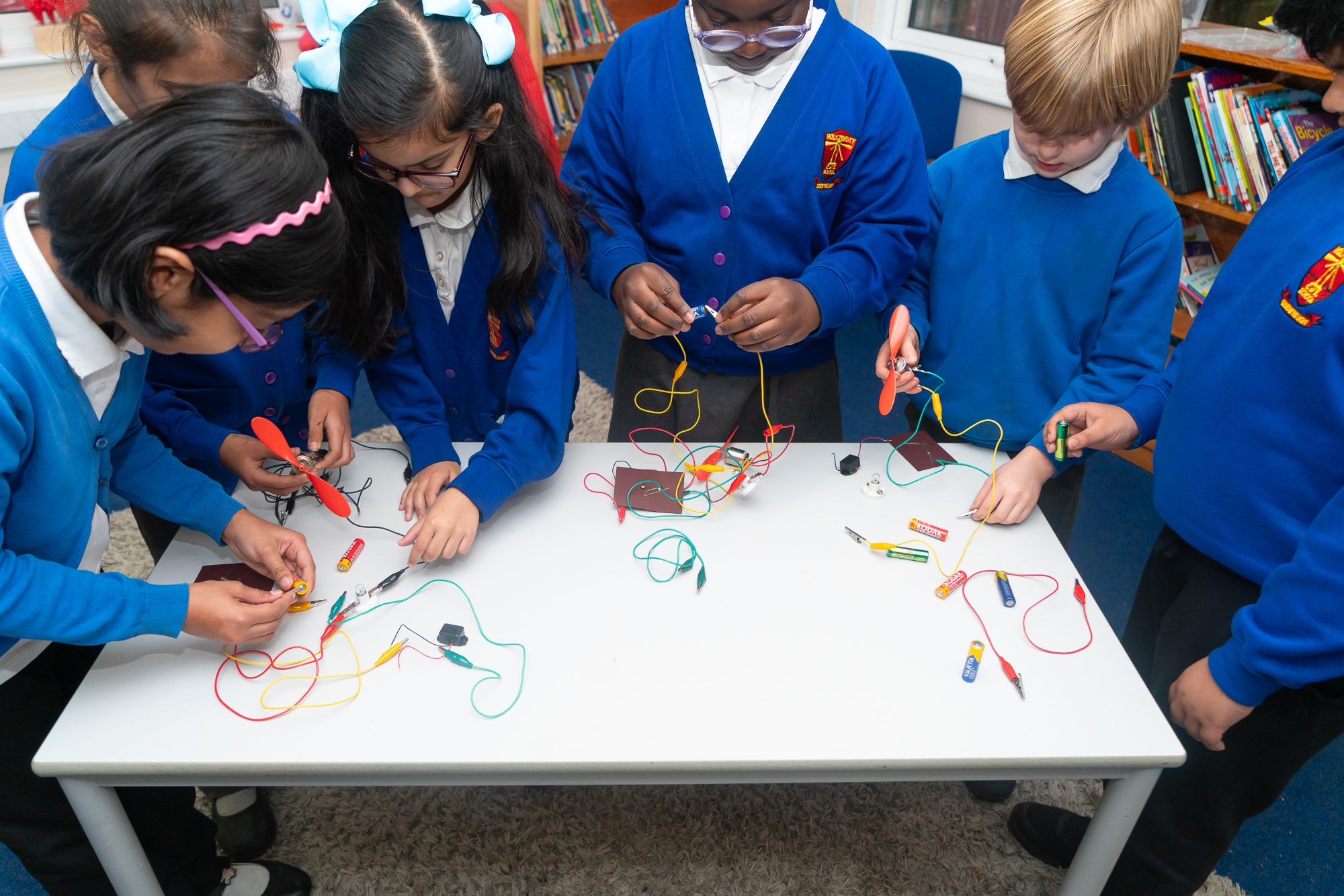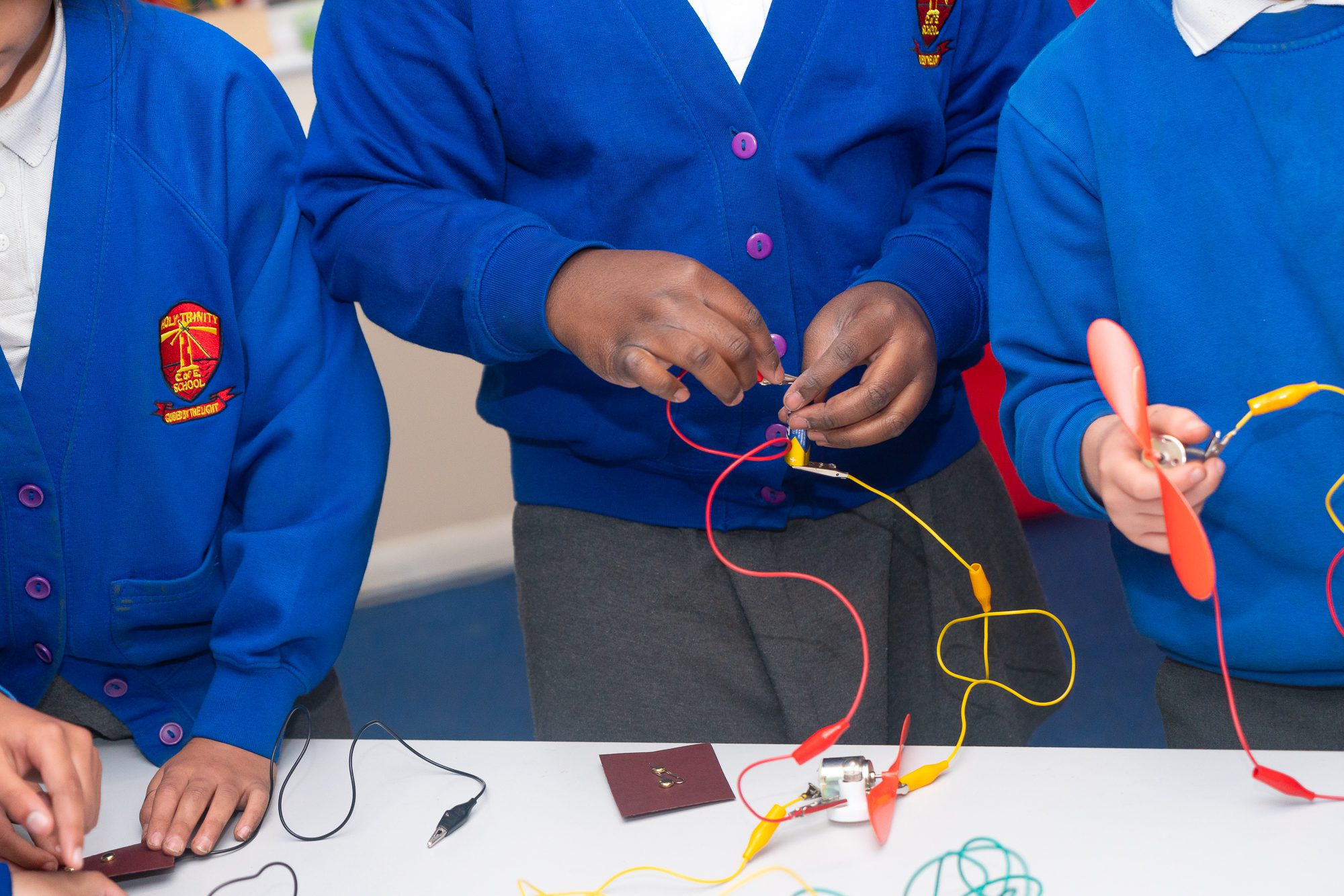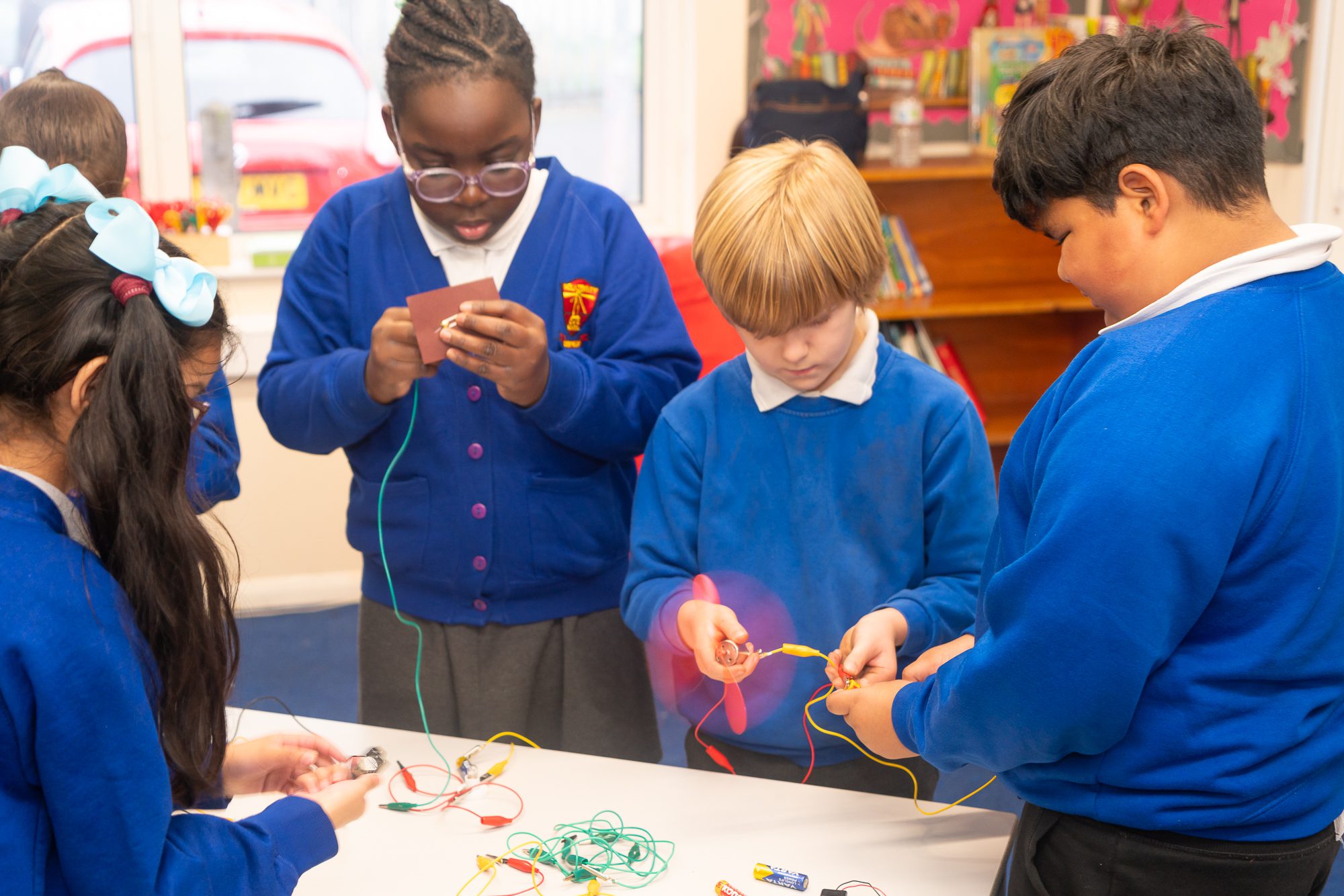Science Subject Leader: Miss G Wood
Questioning how things happen and evolve is a real passion of mine and a passion I intend to engage our children in.
– Miss G Wood, Science Subject Lead
For any more information on Holy Trinity’s Science Curriculum, please contact the office.
We live in a world surrounded by science from the light bulb we turn on in the evening to the invention of computers and the Internet. The history of science and the figures that brought us to the world we live in today is amazing and we are inspired by the men and woman of Science. We strongly believe there is a thirst for science and understanding of the world we live in embedded in all of us.
Intent
At Holy Trinity, all our pupils will develop scientific knowledge and conceptual understanding through the specific disciplines of biology, chemistry, and physics.
We understand that it is important for lessons to have a skills-based focus, therefore our science curriculum fosters a healthy inquisitive nature in pupils ensuring that the Working Scientifically skills are built-on and developed throughout. We enable our pupils’ scientific vocabulary, and different types of scientific enquiry to flourish; whilst encouraging all to use their voice to challenge in a positive and respectful manner, confidently demonstrating their curiosity whilst applying their knowledge of science.
We engage our pupils in an understanding of science for all, ensuring a diverse representation of the science community. Our pupils will leave us at the end of year 6, shining like beacons, equipped and ready with the scientific skills required to understand the uses and implications of science in our community, today and in the future.


Implementation
At Holy Trinity, we pride ourselves on creating positive attitudes towards science learning. Our pupils have the understanding that anybody can be a scientist, reinforcing that all children can achieve high standards in science, regardless of colour, gender or disability encouraging and setting our pupils up for a world fast progressing towards STEM lead future.
The pupil’s Science journey begins in the Early Years Foundation Stage where we begin to create scientific curiosity through pupils’ Understand of the World. This allows children to explore growth, habitats, keeping healthy, materials, changing states and many natural processes. Learning is hands-on and often child initiated with effective teaching and learning often taking in our outside environment. Our Early Years team promote the asking of questions through pupils’ curiosity, as well as promoting children’s investigative nature.
As a school, we follow the ‘Kapow’ scheme of work where topics have been carefully selected to create ‘real life’ experiences. Through careful planning, we have ensured each programme of study from the National Curriculum is taught in every year group to guarantee repetition and mastery. Each year we build on pupils’ learning from previous years to progress knowledge and understanding this enables our pupils to become more proficient in each programme of study from the National Curriculum.
Our lessons are created to encourage engagement and curiosity that involve problem-solving opportunities that allow children to find out for themselves. Children are encouraged to ask their own questions. There are opportunities to use their scientific skills, language, and independent research to discover the answer for themselves, after predicting or hypothesising what the outcome of their investigations might be.
Our pupils’ ability to be independent when working scientifically is of great importance to our teachers, we embed and introduce new vocabulary and challenging concepts throughout our teaching to inspire our pupil’s thinking and improve their understanding.
Impact
The successful approach to science provides children with the foundations for understanding the world around them. By the time they leave us, all pupils have a coherent knowledge and understanding of the three science disciplines: biology, chemistry, and physics. This knowledge, alongside scientific skills, enables them to ask questions, think critically, weigh the evidence and draw relevant conclusions. Pupils feel confident in their science knowledge and enquiry skills.
Leaders monitor the quality and impact of the science curriculum through lesson observations and regular pupil voice to ascertain the extent to which pupils know more and remember more.
The impact and measure of this are seen in our pupils who are equipped with the skills and knowledge they need to enable them to be ready for the Key Stage 3 curriculum and for life as an adult in the wider world.

Science in Each Stage
Early science learning enhances children’s natural curiosity and motivation to learn about the world around them. At EYFS it is important that children spend as much time as possible gaining knowledge of processes to form a solid foundation on which they can further develop as they get older.
This is taught through providing opportunities such as exploring the natural world, using their five sense, making observations, and predicting outcomes.
During years 1 and 2, children are taught to use scientific methods, processes and skills such as asking simple questions and recognising that they can be answered in different ways, close observation, using their observations and ideas to suggest answers to questions, performing simple tests using simple equipment, identifying and classifying, gathering and recording data to help in answering questions.
In Year 1, there are many expectations of children. For example, they should be able to identify and name a variety of common wild and garden plants and the basic parts of flowering plants. They should be able to identify and name a variety of common animals including carnivores, herbivores and omnivores and describe the weather associated with the different seasons and how day length varies.
In Year 2, some of the expectations of children are to be able to describe how plants need water, light and a suitable temperature to grow and stay healthy; describe the basic needs of animals (including humans) for survival; identify and compare the suitability of a variety of everyday materials including wood, metal, plastic, glass, brick, rock, paper, and cardboard for particular uses.
During years 3 and 4, children are taught to develop their scientific methods, processes and skills further. This includes asking relevant questions and using different types of scientific enquiries to help answer them. They will also set up simple practical enquiries, and comparative and fair tests, make systematic and careful observations, and gather and record results using simple scientific language. They are expected to be able to classify and present data in a variety of ways to help answer questions whilst using their results to draw simple conclusions, make predictions for new values, suggest improvements and raise further questions.
One of the purposes of science teaching in upper Key Stage 2 is to create a deeper understanding of a wide range of scientific ideas through discussion, questioning, experimenting and analysing. In years 5 and 6 children need to work more systematically to plan different types of scientific enquiries to answer questions, including recognising and controlling variables as well as using a range of scientific equipment with increasing accuracy and precision. They will be concerned with the reliability of the data and take repeat readings when appropriate. They must record data and results of increasing complexity and test the results to make predictions to set up further comparative and fair tests. Findings are reported and presented and will be used to support or contest existing ideas or arguments.
SEND Information
Our SEND and disadvantaged pupils are given the necessary support in class to fully access the supported Science curriculum. Learning is adapted where necessary to support SEND/EAL pupils to give equal opportunities for all to be confident in approaching any problems faced. Interventions, support and challenges are constantly revised and adapted to ensure all children are supported in achieving learning. The above areas are robustly and continuously monitored to ensure any gaps in learning are addressed.

